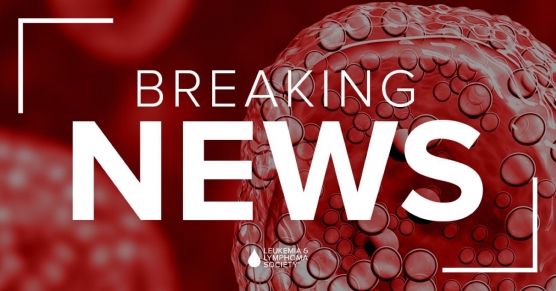Rye Brook, N.Y. (February 5, 2021) – The U.S. Food and Drug Administration (FDA) today announced approval of UKONIQ™ (umbralisib), a once-daily, oral medication for the treatment of marginal zone lymphoma (MZL) that has returned or worsened following prior treatment with an anti-CD20 antibody. MZL is a clinical heterogeneous, slow-growing non-hodgkin lymphoma composed of three subtypes: extranodal, nodal or splenic MZL. It is considered a slow growing disease with generally favorable outcome. However, patients who progress to a more a treatment-resistant, aggressive lymphoma have few options; this type of disease is considered incurable. Approval was also granted for follicular lymphoma in patients who have failed three prior systemic therapies.
Umbralisib was granted breakthrough therapy designation, which the FDA reserves for drugs it anticipates will provide substantial benefit to patients with serious or life-threatening conditions. Today’s approval of umbralisib was based on results from UNITY-NHL, an open-label Phase 2b clinical trial. Nearly half (49.3%) of 69 patients with relapsed or refractory MZL in the trial improved with umbralisib treatment and 16% of patients achieved complete response and had no detectable cancer after more than two years of follow-up. For patients with advanced FL, the overall response rate was 43% with 3% found to have no detectable cancer.
Umbralisib is a dual inhibitor of PI3K-delta and CK1-epsilon. Since 1999, LLS research grants have contributed to the understanding of the PI3K pathway, which is implicated in almost all human cancers including MZL. Because of its relatively small patient population, LLS does not have many grants directly targeting MZL, but 10% of LLS research funding —$19.5 million in 2020 alone — is committed to slow growing lymphomas like MZL and FL. In particular, LLS is funding six studies examining new therapeutic strategies to treat FL.
Despite being the third most common indolent non-Hodgkin’s lymphoma, MZL remains largely understudied, and given its underlying disease heterogeneity, it is challenging to define a single treatment approach for these patients. The approval of umbralisib is an encouraging advancement for patients with MZL, a long-term debilitating disease with few treatment options available. In contrast, FL is the second most common indolent non-Hodgkin lymphoma and has been intensively studied. Despite the recent approval of new therapies for advanced FL, the disease remains incurable. Umbralisib adds to the rapidly increasing arsenal to control indolent lymphomas.
About The Leukemia & Lymphoma Society
The Leukemia & Lymphoma Society® (LLS) is a global leader in the fight against cancer. The LLS mission: Cure leukemia, lymphoma, Hodgkin's disease and myeloma, and improve the quality of life of patients and their families. LLS funds lifesaving blood cancer research around the world, provides free information and support services, and is the voice for all blood cancer patients seeking access to quality, affordable, coordinated care.
Founded in 1949 and headquartered in Rye Brook, NY, LLS has regions throughout the United States and Canada. To learn more, visit www.LLS.org. Patients should contact the Information Resource Center at (800) 955-4572, Monday through Friday, 9 a.m. to 9 p.m. ET.
For additional information visit lls.org/lls-newsnetwork. Follow us on Facebook, Twitter, and Instagram.

